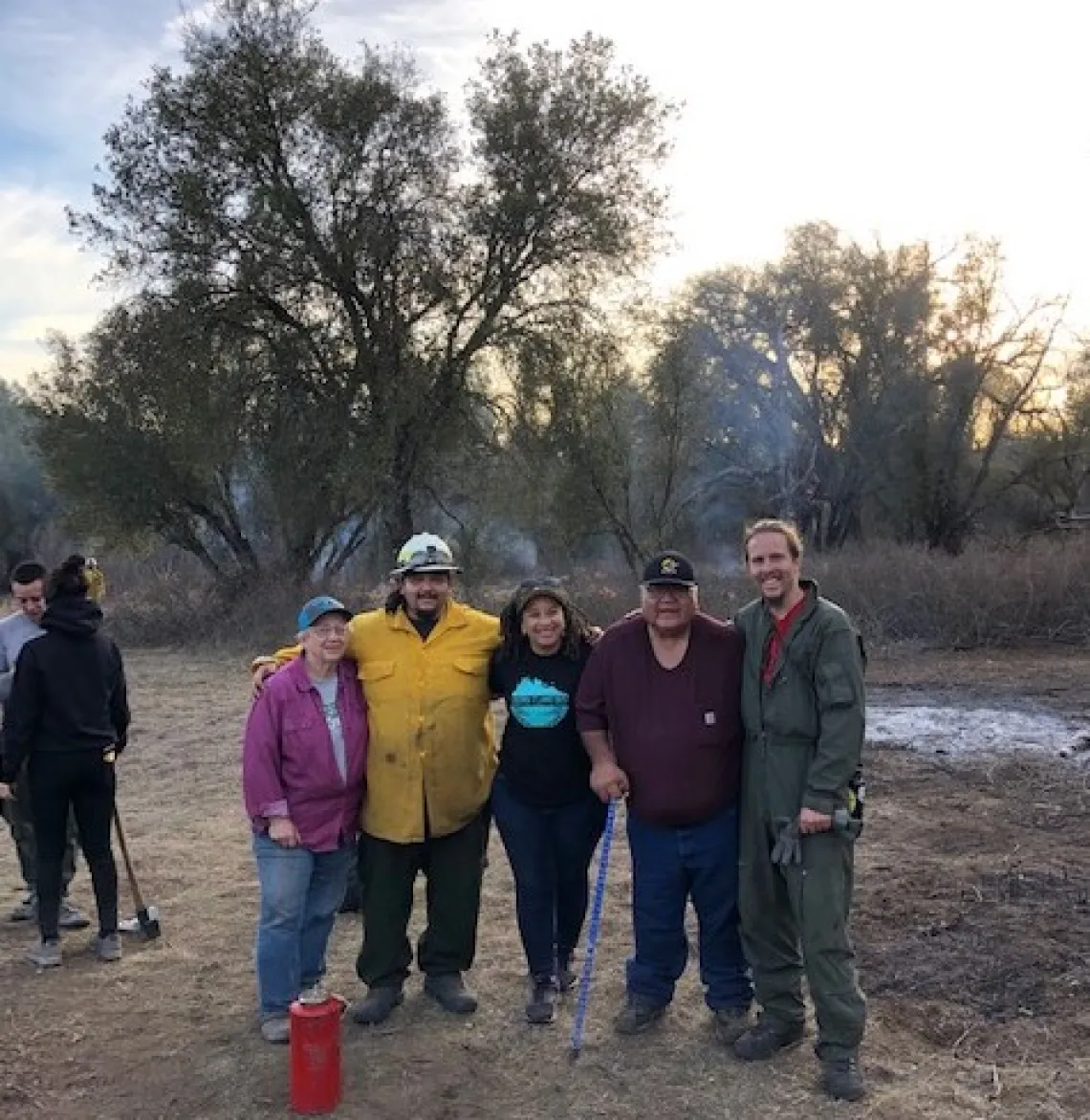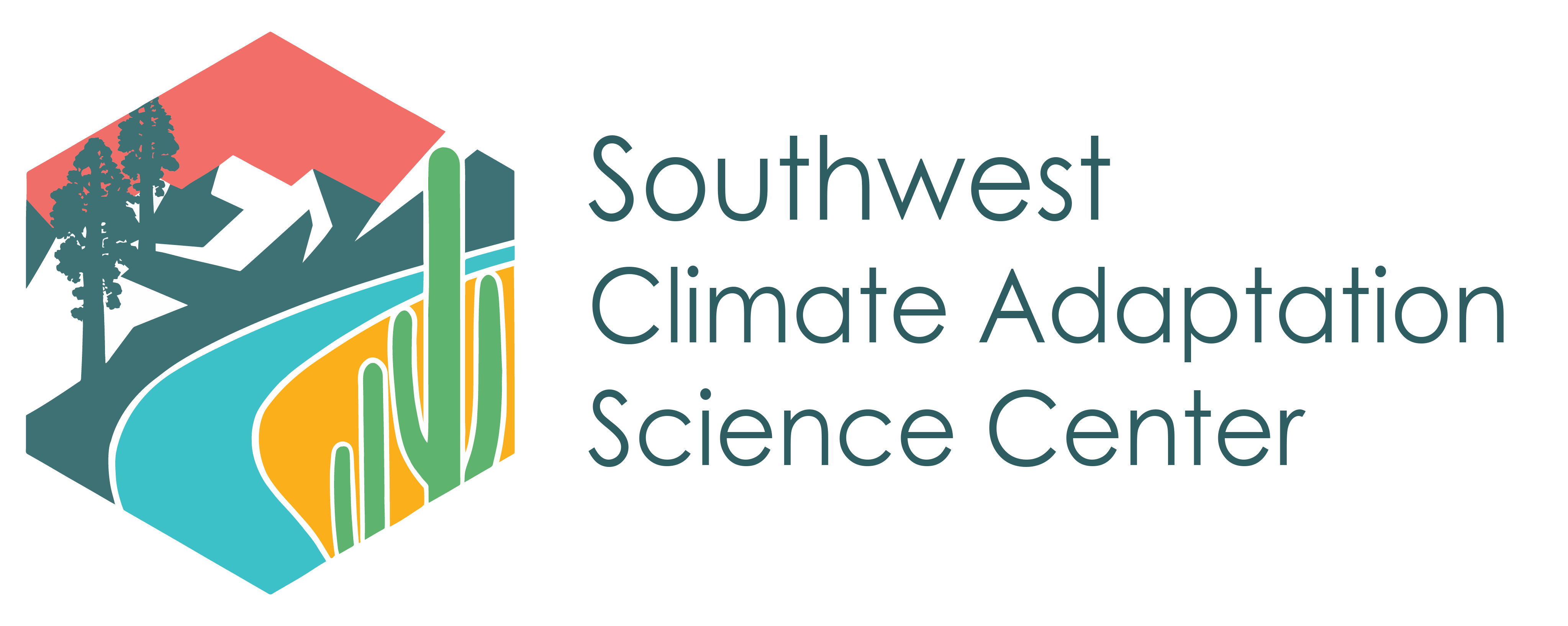Developing Relationships Among Different Communities

Left to right: Mayra Goode, Danny Manning (Maidu), Beth Rose Middleton Manning, Ron Goode (North Fork Mono), and Christopher Adlam, at a cultural burn workshop with Ron Goode in Mariposa, CA in 2019.
This profile is a part of our consortium profile series, highlighting the people that make up the SW CASC—what inspires them, makes them passionate about their research, and gives them hope for the future. For this profile, Bryson Mineart (SW CASC communications student assistant and undergraduate student in the University of Arizona Physics program) interviewed SW CASC co-investigator Beth Rose Middleton, Professor and Department Chair for the Native American Studies Department at University of California, Davis.
Growing up, Beth Rose Middleton recognized the harsh reality that our environmental resources are not split in an ideal manner to assure that all have their needs met. Through this injustice Beth Rose found inspiration to spend much of her career and early life working to build awareness of, and develop climate-adapted solutions focused on, environmental justice. She dedicates her time to building authentic relationships amongst groups with differing viewpoints and ensuring clear communication between groups.
Beth Rose’s inspiration began when adventuring outside as a young child, from her interactions with other individuals, local plant life, and even watching local wildlife roam free. However, Beth Rose’s largest inspiration spawns from the injustices that are ever-present in the social matrix surrounding us. This realization led her down a path of completing an undergraduate thesis on Attitudes towards Forest Management in northern California and eventually working in environmental policy with a concentration on growing relationships and connecting bridges between communities.
In her current position as a Professor, Beth Rose is often reviewing the present impact of past policy actions, and their influence on society. Beth Rose is continuously striving for equality, by addressing each policy, new and old, to see how they have impacted, or may impact in the future, individual lives around the area. She ensures that policies will improve outcomes and relationships among communities within a scope of human caused climate change.
For much of her work, Beth Rose enlists the assistance and cooperation of diverse collaborators. With her eye toward environmental justice and to foregrounding the leadership of Indigenous practitioners, she works to build lasting relationships with Native nations and Native non-profit organizations. The Honorable Ron Goode (Tribal Chairman of the North Fork Mono Tribe) and cultural practitioner Diana Almendariz (Wintun, Nisenan, Hupa), respectively, have led many classes with Beth Rose, where participants are able to participate in cultural burns, a traditional Native American practice of burning grasslands and forests to improve the resilience of ecosystems. On these trips, participants learn the beneficial impacts of many Native traditions when thinking about climate adaptation.
When it comes to being hopeful for the future, Beth Rose sees collaboration as a crucial aspect to moving forward on climate change. Specifically, increased collaboration with tribes and foregrounding Indigenous leadership in climate adaptation solutions. One example of this is cultural burning, which has shown promise in protecting ecosystems against invasive plant species and large wildfires, and improving forest health. Beth Rose is also intrigued by Indigenous-led applications of carbon offsets, in a context of recognized Indigenous property rights, and strict policies on decreasing emissions overall.
In all, Beth Rose hopes for a future with increased environmental justice, increased communication and collaboration, and increased conservation, which are all crucial for climate adaptation.

